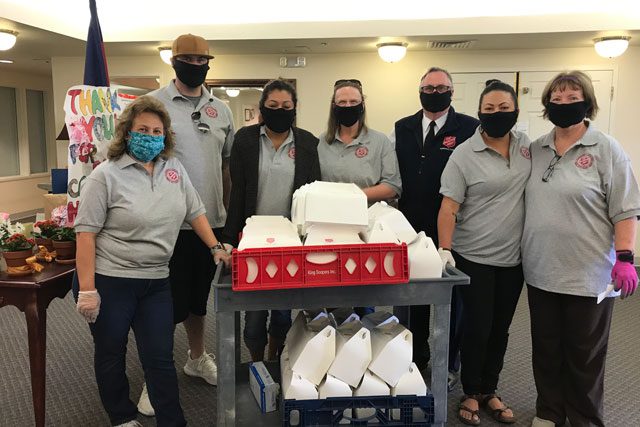Listen to this article
Listen to this article
Loading
Play
Pause
Options
0:00
-:--
1x
Playback Speed- 0.5
- 0.6
- 0.7
- 0.8
- 0.9
- 1
- 1.1
- 1.2
- 1.3
- 1.5
- 2
Audio Language
- English
- French
- German
- Italian
- Spanish
Open text
the disciplined pursuit of pausing in a world full of “go”. the first task of embracing uncomfortable is the purposeful choice of stepping into the discomfort of saying no regardless of the consequence. there is little hope of achieving the remaining elements of radical transformation without the discipline of pausing. this needs to be our life strategy. when i pitched embracing uncomfortable to my publisher, i honestly had no idea what i was doing. i was walking to the meeting one morning and sending up a prayer of panic when it occurred to me (thank you, god)—make them uncomfortable! it was either genius or overwhelmingly naïve, but thankfully it worked (you’re reading the book aren’t you?). i asked the players in the room to pull out a piece of paper and write down one thing truly meaningful in their life they had been wanting to change but had so far really struggled with. once that was accomplished, i asked them to write down all the things preventing them from making the change. next—cross out anything on that list that was an impossibility, but i wouldn’t let them toss out “time.” talk about squirming! i received plenty of pushback. and most of us tend to think like this: adding time to our life would be wonderful, but it’s absolutely impossible. why does saying “no” scare us half to death, especially when the list of things we’re sacrificing to our perceived lack of time are often valuable, important, and sometimes even life-saving? i would argue that the reason we keep saying yes instead of no is because we’ve unconsciously placed our values in the hands of others. we give them (spouse, boss, parent, mom’s group member, neighbor, social media follower) the power to measure us by what we accomplish and achieve on their scale and not our own. i call the motivation behind these yeses the “i-don’t-want-tos” of life. i don’t want to fail. i don’t want to miss out. i don’t want to disappoint. i don’t want to be seen as less than. i don’t want to be left in the dust. i don’t want to ________________. the irony is, in all our efforts to avoid the “i-don’t-want-tos,” i bet you could pause here (see how i did that) and name multiple times in the last week, maybe even the last day, where you experienced or saw yourself as failing, missing out, disappointing, or not measuring up. the “i-don’t-want-tos” have the system rigged! they win no matter what! until now. when we practice the discipline of pausing, it’s like putting on a new pair of glasses when you’ve been walking around with an outdated prescription for far too long. it shifts everything around you and consequently everything in you into perspective. yet, you’ll also never get into the habit of disciplined pausing without shifting your perspective—it’s an evil “chicken or the egg” situation. which comes first? sometimes it depends on how hungry you are. let’s start with this reality: every decision you make, from the smallest to the largest, involves a loss. this is critical to the success of embracing uncomfortable and choosing to move in alignment with your values and purpose. the loss might be big or tiny, but the loss is always present. we tend to make decisions based on the gains, not the losses. it’s why we say yes. let’s go back to our list from above and plug in the “gains.”. if i say yes to this, i’ll gain:. success. inclusion. approval. adequacy. we might think we’re gaining something in our decisions, but at what cost? oftentimes the answer to that question carries a much greater loss than the gains we’re pursuing. think about it. if i spend more time at work accomplishing tasks, making everyone happy, and getting every last item on my to-do list done, i may have gained success, but i’ve lost quality connection to the key relationships in my life. if i put another activity on my kids’ social schedule to show how accomplished my family is, keep up with the joneses, and make sure my child doesn’t feel left out, i may have gained approval, but i’ve lost out on quality time with my family and quite possibly for myself. when i conform to the style/behavior/expectation of the media and popular culture, i may have gained inclusion, but i’ve lost my unique identity. don’t fool yourself into thinking loss is avoidable—challenge yourself to embrace that loss is inevitable. when we consider the truth that there’s always a loss and we willingly shift to consider the greater loss we want to avoid, we all of a sudden open ourselves up to the option of pursuing choices that align more with our values and less with others’ expectations. yes, this is uncomfortable, but only for a season. okay, let’s pause here for a moment. i want to consider how this mindset is different from those of you who might be thinking right now, “but dr. deb, you don’t understand, my life is made up of losses. i’m constantly losing and never gaining. loss is inevitable in my life. when do the gains kick in?” like all good decision-making, this requires balance. just like we can focus too much on the gains in life, we can also get trapped in fixating on our losses. losses are painful, traumatizing, overwhelming, suffocating, and yes, inevitable. don’t think for one minute i’m asking you to minimize or invalidate your losses. loss requires mourning. i could write an entire book on the lost art of lamentation, but in this brief space hear that i’m advocating for your need to grieve the losses in your life that have left unavoidable scars on your heart. then, when you’re ready or when you’re willing (these two don’t always line up, unfortunately), step into the choices you do have power over and consider the loss you want to avoid for the gain you want to embrace. excerpted from embracing uncomfortable: facing our fears while pursuing our purpose by deborah e. gorton (© 2020). published by moody publishers. used by permission. do good:. read embracing uncomfortable: facing our fears while pursuing our purpose (moody publisher, 2020) by dr. deborah gorton. see how you can get involved in the fight for good at westernusa.salvationarmy.org. did you know the salvation army served more than 23 million americans last year fighting hunger, homelessness, substance abuse and more—all in a fight for good? where can you help? take our quiz to find your cause and learn how you can join in today.
Open context player
Close context player
Plays:-Audio plays count
the disciplined pursuit of pausing in a world full of “go”. the first task of embracing uncomfortable is the purposeful choice of stepping into the discomfort of saying no regardless of the consequence. there is little hope of achieving the remaining elements of radical transformation without the discipline of pausing. this needs to be our life strategy. when i pitched embracing uncomfortable to my publisher, i honestly had no idea what i was doing. i was walking to the meeting one morning and sending up a prayer of panic when it occurred to me (thank you, god)—make them uncomfortable! it was either genius or overwhelmingly naïve, but thankfully it worked (you’re reading the book aren’t you?). i asked the players in the room to pull out a piece of paper and write down one thing truly meaningful in their life they had been wanting to change but had so far really struggled with. once that was accomplished, i asked them to write down all the things preventing them from making the change. next—cross out anything on that list that was an impossibility, but i wouldn’t let them toss out “time.” talk about squirming! i received plenty of pushback. and most of us tend to think like this: adding time to our life would be wonderful, but it’s absolutely impossible. why does saying “no” scare us half to death, especially when the list of things we’re sacrificing to our perceived lack of time are often valuable, important, and sometimes even life-saving? i would argue that the reason we keep saying yes instead of no is because we’ve unconsciously placed our values in the hands of others. we give them (spouse, boss, parent, mom’s group member, neighbor, social media follower) the power to measure us by what we accomplish and achieve on their scale and not our own. i call the motivation behind these yeses the “i-don’t-want-tos” of life. i don’t want to fail. i don’t want to miss out. i don’t want to disappoint. i don’t want to be seen as less than. i don’t want to be left in the dust. i don’t want to ________________. the irony is, in all our efforts to avoid the “i-don’t-want-tos,” i bet you could pause here (see how i did that) and name multiple times in the last week, maybe even the last day, where you experienced or saw yourself as failing, missing out, disappointing, or not measuring up. the “i-don’t-want-tos” have the system rigged! they win no matter what! until now. when we practice the discipline of pausing, it’s like putting on a new pair of glasses when you’ve been walking around with an outdated prescription for far too long. it shifts everything around you and consequently everything in you into perspective. yet, you’ll also never get into the habit of disciplined pausing without shifting your perspective—it’s an evil “chicken or the egg” situation. which comes first? sometimes it depends on how hungry you are. let’s start with this reality: every decision you make, from the smallest to the largest, involves a loss. this is critical to the success of embracing uncomfortable and choosing to move in alignment with your values and purpose. the loss might be big or tiny, but the loss is always present. we tend to make decisions based on the gains, not the losses. it’s why we say yes. let’s go back to our list from above and plug in the “gains.”. if i say yes to this, i’ll gain:. success. inclusion. approval. adequacy. we might think we’re gaining something in our decisions, but at what cost? oftentimes the answer to that question carries a much greater loss than the gains we’re pursuing. think about it. if i spend more time at work accomplishing tasks, making everyone happy, and getting every last item on my to-do list done, i may have gained success, but i’ve lost quality connection to the key relationships in my life. if i put another activity on my kids’ social schedule to show how accomplished my family is, keep up with the joneses, and make sure my child doesn’t feel left out, i may have gained approval, but i’ve lost out on quality time with my family and quite possibly for myself. when i conform to the style/behavior/expectation of the media and popular culture, i may have gained inclusion, but i’ve lost my unique identity. don’t fool yourself into thinking loss is avoidable—challenge yourself to embrace that loss is inevitable. when we consider the truth that there’s always a loss and we willingly shift to consider the greater loss we want to avoid, we all of a sudden open ourselves up to the option of pursuing choices that align more with our values and less with others’ expectations. yes, this is uncomfortable, but only for a season. okay, let’s pause here for a moment. i want to consider how this mindset is different from those of you who might be thinking right now, “but dr. deb, you don’t understand, my life is made up of losses. i’m constantly losing and never gaining. loss is inevitable in my life. when do the gains kick in?” like all good decision-making, this requires balance. just like we can focus too much on the gains in life, we can also get trapped in fixating on our losses. losses are painful, traumatizing, overwhelming, suffocating, and yes, inevitable. don’t think for one minute i’m asking you to minimize or invalidate your losses. loss requires mourning. i could write an entire book on the lost art of lamentation, but in this brief space hear that i’m advocating for your need to grieve the losses in your life that have left unavoidable scars on your heart. then, when you’re ready or when you’re willing (these two don’t always line up, unfortunately), step into the choices you do have power over and consider the loss you want to avoid for the gain you want to embrace. excerpted from embracing uncomfortable: facing our fears while pursuing our purpose by deborah e. gorton (© 2020). published by moody publishers. used by permission. do good:. read embracing uncomfortable: facing our fears while pursuing our purpose (moody publisher, 2020) by dr. deborah gorton. see how you can get involved in the fight for good at westernusa.salvationarmy.org. did you know the salvation army served more than 23 million americans last year fighting hunger, homelessness, substance abuse and more—all in a fight for good? where can you help? take our quiz to find your cause and learn how you can join in today.
Listen to this article

















